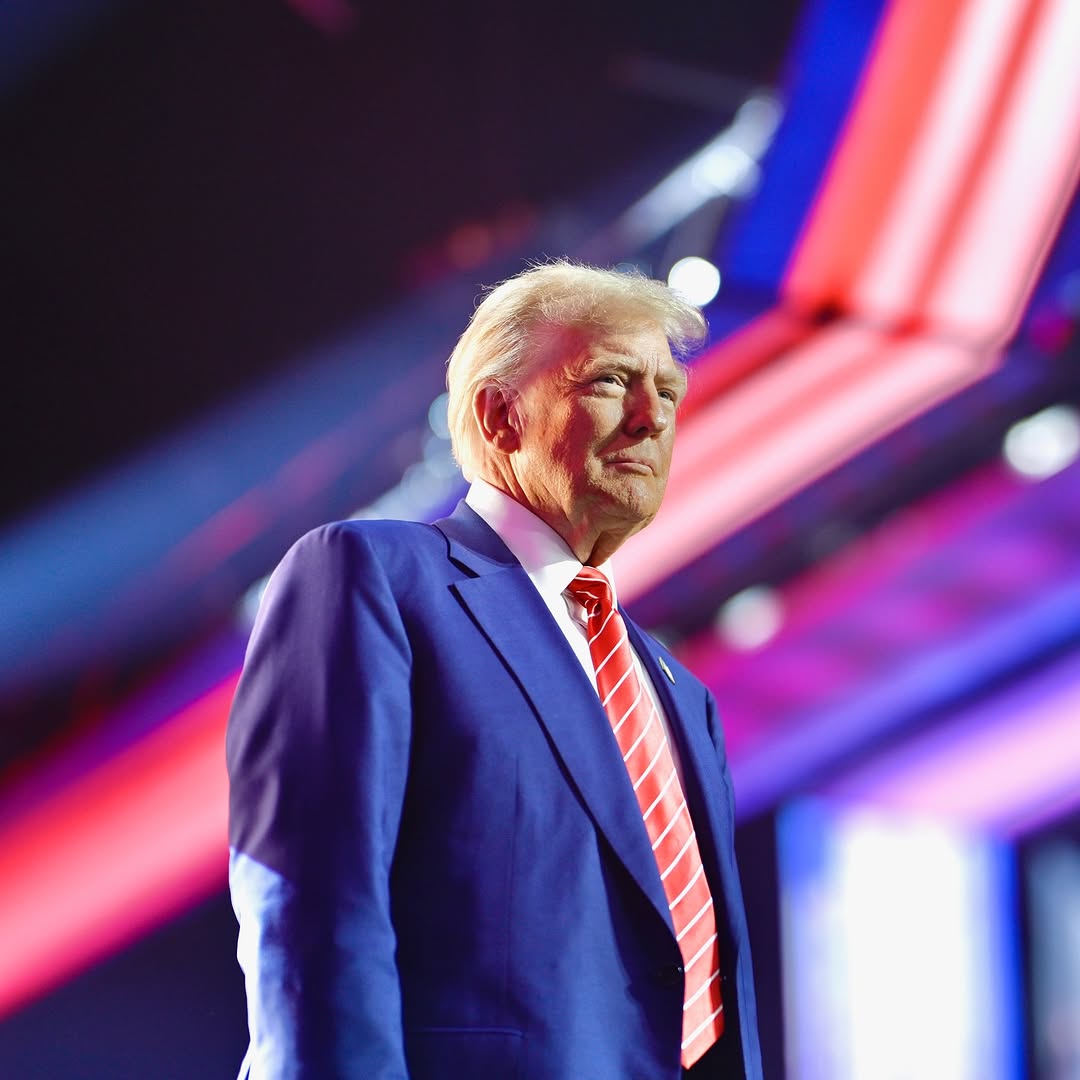Donald Trump's First Day in Office: Executive Actions and Policy Shifts
On his first day back in the White House, President Donald Trump wasted no time in issuing a flurry of executive orders aimed at swiftly dismantling key policies implemented by the Biden administration. The sweeping changes span a wide range of areas, including immigration, energy policy, climate commitments, federal employment regulations, and social policy.
Trump’s rapid-fire approach has been described by political analysts as a "shock-and-awe" strategy designed to signal a decisive break from his predecessor and reassert his signature "America First" agenda. During an interview with Fox News, Trump referred to his first day in office as a moment for "strong leadership" and suggested that such measures were necessary for a a “complete restoration of America”.
In his inaugural address, Trump declared:
"Today marks the beginning of a new chapter in American history. We will bring back jobs, secure our borders, and put America first in all decisions—domestic and international."
The following is an in-depth analysis of the key executive orders signed by President Trump and their potential ramifications.
1. Immigration Crackdown: Termination of Birthright Citizenship
One of Trump's most controversial executive actions on his first day was the issuance of an order to limit birthright citizenship, which has long been guaranteed under the 14th Amendment. The order stipulates that individuals born in the U.S. to undocumented parents will no longer be granted automatic citizenship if their parents were unlawfully present at the time of birth.
Key Provisions:
Effective 30 days from the signing of the order.
Citizenship will be denied to children whose parents do not have legal status or lawful residency in the U.S.
Implications:
Legal scholars widely anticipate court challenges, with constitutional experts arguing that the order directly contradicts established interpretations of the 14th Amendment. Immigration advocates have also raised concerns about the order’s humanitarian impact, warning that it could create a class of stateless individuals within the U.S.
2. U.S. Withdrawal from the World Health Organization (WHO)
President Trump formally announced the withdrawal of the U.S. from the WHO, accusing the agency of mismanaging the COVID-19 pandemic and being overly influenced by foreign governments.
Key Provisions:
The U.S. will cease financial contributions to the WHO immediately.
Official withdrawal to take effect in 12 months, per international agreements.
Implications:
The move has been met with sharp criticism from health experts who argue that withdrawing from the WHO could weaken global pandemic preparedness and undermine ongoing international health initiatives. Supporters, however, argue that the decision will save taxpayer money and allow the U.S. to pursue its own health strategies independently.
Related: A Comprehensive Overview of Donald Trump’s Foreign Policy: Key Actions and Controversies
3. Energy Policy Overhaul: Declaring a National Energy Emergency
In a significant pivot away from the Biden administration's environmental policies, Trump declared a national energy emergency, which aims to remove restrictions on fossil fuel production, accelerate oil drilling projects, and lift the moratorium on natural gas exports.
Key Provisions:
Immediate approval of new drilling permits in Alaska and offshore sites.
Revocation of emissions restrictions on power plants and vehicles.
Expansion of coal mining operations.
Implications:
The energy sector has welcomed the move, with industry leaders hailing it as a boost to energy independence. However, environmentalists have warned that the rollback of climate protections could have severe ecological consequences and set back efforts to combat climate change. Legal challenges from environmental groups are expected.
4. Federal Workforce Restructuring: Reinstating “Schedule F”
Trump reinstated an executive order from his first term known as "Schedule F," which reclassifies thousands of federal employees, making it easier to dismiss them and replace them with political appointees.
Key Provisions:
Federal workers in policy-influencing roles to be classified as political appointees.
Eased hiring and firing processes for federal employees.
Implications:
Critics argue that this order could lead to the politicisation of government agencies, undermining their independence and effectiveness. Supporters, however, claim it is a necessary measure to eliminate bureaucratic inefficiencies and remove "deep state" resistance.
Related: Expanded View on Donald Trump’s Inauguration Day: A Momentous Celebration
5. Social Policy Shift: Recognition of Only Two Genders
A new executive order mandates that federal agencies and official documents must recognise only two genders—male and female—eliminating policies that provide accommodations for gender identity.
Key Provisions:
Gender-neutral terms removed from federal documentation.
Elimination of diversity training programs addressing gender identity.
Implications:
LGBTQ+ rights groups have condemned the order, calling it a regressive step that erodes protections for transgender individuals. Meanwhile, conservative groups have praised it as a return to "biological reality" in legal definitions.
6. Revoking Biden-Era Environmental Regulations
Trump has revoked at least 78 executive actions issued by the Biden administration, including key climate-focused initiatives such as electric vehicle targets and regulations aimed at reducing carbon emissions.
Key Provisions:
Removal of electric vehicle sales targets for 2030.
Expansion of fossil fuel leasing on public lands.
Loosening of emissions standards for automakers.
Implications:
This rollback is likely to lead to higher greenhouse gas emissions and increased reliance on traditional energy sources. It represents a significant setback for climate advocacy groups but aligns with Trump's focus on economic growth and energy independence.
7. Suspension of the TikTok Ban
Trump issued an executive order that postpones the implementation of a federal ban on TikTok for a minimum of 75 days.
Implications:
Trump instructed his attorney general to refrain from enforcing the legislation that mandates the sale of TikTok. He asserts that this suspension provides an opportunity to determine a suitable strategy for safeguarding national security without hastily terminating the widely-used application.
During his initial term, Trump supported a ban on TikTok; however, he has since revised his stance, influenced by various factors, including his own popularity on the platform.
“I guess I have a warm spot for TikTok that I didn’t have originally,” Trump said at the White House.
Latest: Trump Delays TikTok Ban: U.S. Users Back Online Amid Political Drama
8. Declaring a National Border Emergency
Trump declared a national emergency at the southern U.S. border, which grants him broad powers to enhance border security measures and deploy military personnel.
Key Provisions:
Deployment of National Guard troops to assist in border enforcement.
Expedited deportation procedures for undocumented migrants.
Immediate resumption of border wall construction.
Implications:
Trump's supporters view this action as a necessary step to curb illegal immigration. However, immigrant advocacy groups argue it could lead to human rights violations and logistical challenges in implementation.
9. Pardons for January 6 Defendants
Trump granted full pardons and commutations to individuals convicted in connection with the January 6 Capitol riot, fulfilling a key campaign promise.
Key Provisions:
Instructs the Department of Justice to halt ongoing prosecutions.
Pardons issued to over 200 individuals involved in the attack.
Implications:
The pardons have sparked controversy, with critics arguing that they undermine accountability and the rule of law. Trump loyalists, however, see it as a correction of perceived injustices.
10. Withdrawal from the Paris Climate Agreement
Trump formally withdrew the U.S. from the 2015 Paris Agreement, fulfilling a campaign promise to reverse Biden’s climate commitments.
Implications:
Environmental groups have warned that the U.S.’s exit could slow global efforts to combat climate change, while Trump supporters argue the accord placed undue economic burdens on American industries.
Related: The Paris Climate Agreement: A Comprehensive Overview of Its Goals, Challenges, and Future Prospects
President Trump's first day in office has been marked by bold and controversial moves aimed at reversing key policies of the previous administration. His executive actions are set to face significant legal and political challenges, with opponents arguing they undermine progress in areas such as climate change, immigration, and social equity.









